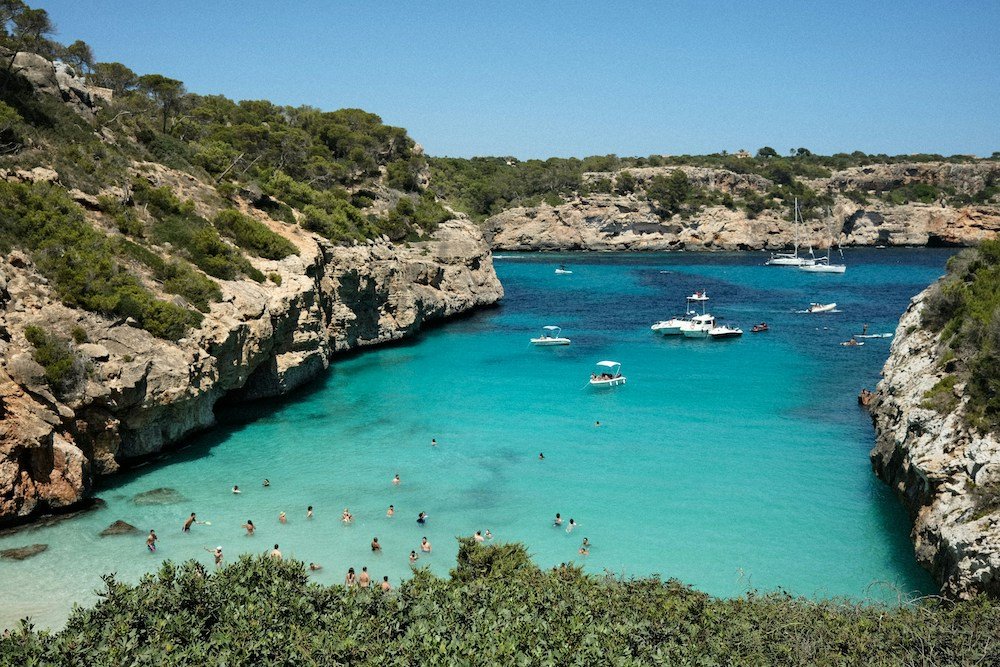
Want to discover things you should know before visiting the Balearic Islands?
The Balearic Islands, nestled in the crystalline waters of the Mediterranean Sea, epitomize the essence of paradise.
Comprising four main islands – Mallorca, Menorca, Ibiza, and Formentera – this archipelago boasts a captivating blend of natural beauty, rich history, and vibrant culture.
The Balearic Islands, an autonomous community of Spain, have long been revered as a premier destination for travelers seeking sun-drenched beaches, azure waters, and unparalleled relaxation.
Each island offers its own distinct charm, attracting visitors from around the globe year-round.
Situated off the eastern coast of Spain, the Balearics occupy a strategic position in the Mediterranean.
Mallorca, the largest of the islands, lies at the heart of the archipelago, while Menorca, Ibiza, and Formentera adorn the surrounding waters.
The islands’ strategic location has shaped their history, as they have been coveted and inhabited by various civilizations throughout the ages, including the Phoenicians, Romans, Moors, and Catalans.
Today, their unique blend of cultural influences is evident in their architecture, cuisine, and traditions.
Despite their proximity, each of the Balearic Islands exudes its own distinctive character.
Mallorca, often referred to as the “jewel of the Mediterranean,” boasts stunning landscapes ranging from rugged mountains to picturesque coves.
Menorca, renowned for its pristine beaches and tranquil atmosphere, offers a serene escape from the bustle of modern life.
Ibiza, world-renowned for its vibrant nightlife and electrifying energy, is a playground for revelers and music enthusiasts alike.
Meanwhile, Formentera, with its idyllic beaches and laid-back vibe, beckons visitors to unwind and embrace the island’s natural beauty.
From the vibrant streets of Palma de Mallorca to the secluded coves of Menorca, the Balearic Islands offer a tapestry of experiences waiting to be explored.
Whether seeking nightlife, adventure, relaxation, or cultural immersion, these enchanting islands promise an unforgettable holiday experience for every traveler.
Getting to the Balearic Islands

Traveling to the Balearic Islands is a seamless journey, with multiple transportation options ensuring easy access to these Mediterranean gems.
Airports and Major Transportation Hubs
The Balearic Islands are served by several international airports, facilitating convenient travel from major cities across Europe and beyond.
Palma de Mallorca Airport, located on the island of Mallorca, is the largest and busiest airport in the archipelago, offering numerous flights to destinations worldwide.
Other key airports include Menorca Airport, Ibiza Airport, and Formentera does not have its own airport, but visitors can easily reach the island via ferry from Ibiza or mainland Spain.
These airports are well-equipped with modern facilities, including car rental services, shuttle buses, and taxis, ensuring a smooth transition from arrival to onward travel.
Ferries and Boat Services
For travelers seeking an alternative mode of transportation or wishing to island-hop during their visit, ferries and boat services provide convenient connections between the Balearic Islands.
Ferry routes operate regularly between Mallorca, Menorca, Ibiza, and Formentera, offering scenic journeys across the Mediterranean waters.
Visitors can choose from a variety of ferry operators and vessel types, including high-speed ferries, traditional boats, and catamarans, catering to different preferences and travel schedules.
Advance booking is recommended, especially during peak tourist seasons, to secure preferred departure times and ensure a hassle-free journey between the islands.
Travel Tips and Recommendations
When planning your journey to the Balearic Islands, consider the following tips and recommendations to optimize your travel experience:
- Book Flights and Accommodations in Advance: To secure the best deals and availability, consider booking flights and accommodations well in advance of your travel dates, especially during peak seasons.
- Check Entry Requirements: Ensure you have valid travel documents and familiarize yourself with any entry requirements or visa regulations applicable to your nationality.
- Pack Accordingly: Pack light and include essentials such as sunscreen, swimwear, and comfortable walking shoes, as well as any necessary medications or travel documents.
- Consider Travel Insurance: While exploring the Balearics, consider obtaining comprehensive travel insurance to protect against unforeseen circumstances such as trip cancellations, medical emergencies, or lost luggage.
- Respect Local Customs and Regulations: Familiarize yourself with local customs, traditions, and regulations, including rules regarding beach etiquette, waste disposal, and cultural sensitivities.
Overview of the Major Islands
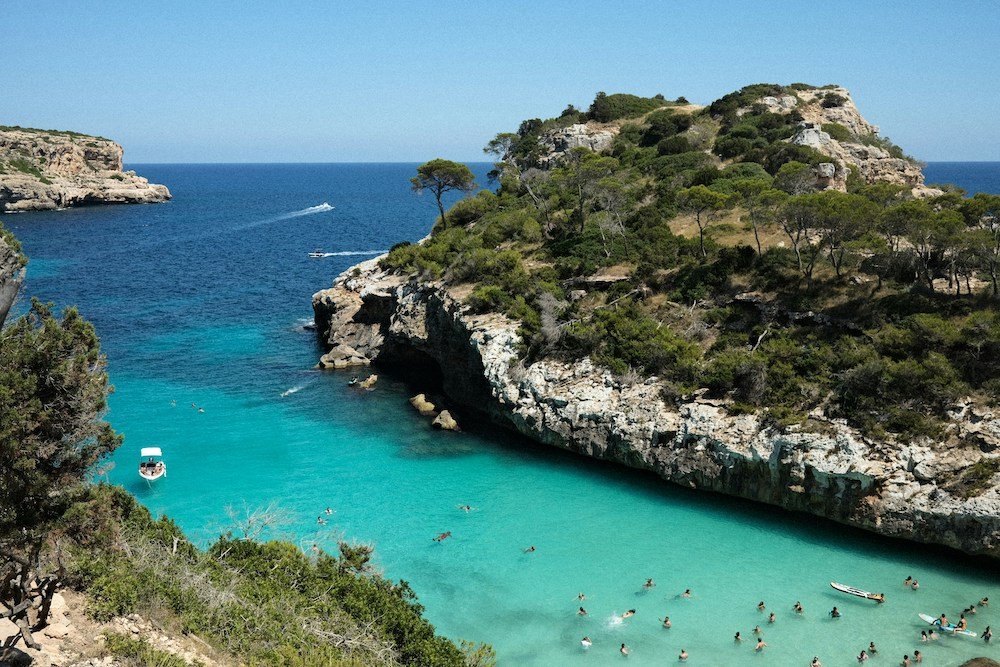
The Balearic Islands offer a captivating array of destinations, each with its own distinctive charm and allure.
From the cosmopolitan streets of Mallorca to the unspoiled landscapes of Menorca, these islands beckon travelers to explore their rich history, breathtaking scenery, and vibrant culture.
1. Mallorca:
The largest and most diverse of the Balearic Islands, Mallorca boasts a diverse landscape encompassing rugged mountains, fertile valleys, and pristine beaches.
Its vibrant capital, Palma de Mallorca, is home to historic landmarks, bustling markets, and cosmopolitan cafes.
Highlights include the historic La Seu Cathedral, the scenic Serra de Tramuntana mountain range, and the picturesque villages of Valldemossa and Deià.
A minimum of 4-5 days is recommended to explore the island’s diverse attractions, including its capital city, scenic landscapes, and historic sites.
2. Menorca:
Known for its tranquil ambiance and natural beauty, Menorca offers a serene escape from the crowds.
With its stunning beaches, picturesque villages, and prehistoric monuments, Menorca is a paradise for nature lovers and history enthusiasts alike.
Notable attractions include the ancient stone monuments of Talaiotic culture, the stunning beaches of Cala Macarella and Cala Mitjana, and the charming port town of Ciutadella.
3-4 days is sufficient to discover the island’s tranquil beaches, charming villages, and archaeological treasures.
3. Ibiza:
Renowned as the party capital of the Mediterranean, Ibiza captivates visitors with its vibrant nightlife, world-class clubs, and electrifying energy.
Beyond the dance floors, Ibiza boasts secluded coves, ancient ruins, and charming villages, offering a diverse range of experiences for travelers.
Must-see sights include the UNESCO-listed Dalt Vila (Old Town), the vibrant nightlife of Ibiza Town and San Antonio, and the tranquil beaches of Cala Comte and Playa d’en Bossa.
3-4 days allows time to experience the island’s vibrant nightlife, cultural landmarks, and natural beauty.
4. Formentera:
Often referred to as the “last paradise of the Mediterranean,” Formentera enchants visitors with its pristine beaches, crystalline waters, and laid-back atmosphere.
This unspoiled island is a haven for relaxation and rejuvenation, where visitors can immerse themselves in nature’s splendor.
Top attractions include the pristine beaches of Ses Illetes and Cala Saona, the iconic lighthouse of Far de la Mola, and the laid-back atmosphere of Es Pujols village.
2-3 days is enough to unwind and soak up the island’s serene ambiance, pristine beaches, and laid-back atmosphere.
Now let’s dive into a comprehensive guide to the Balearic Islands:
Accommodation Options
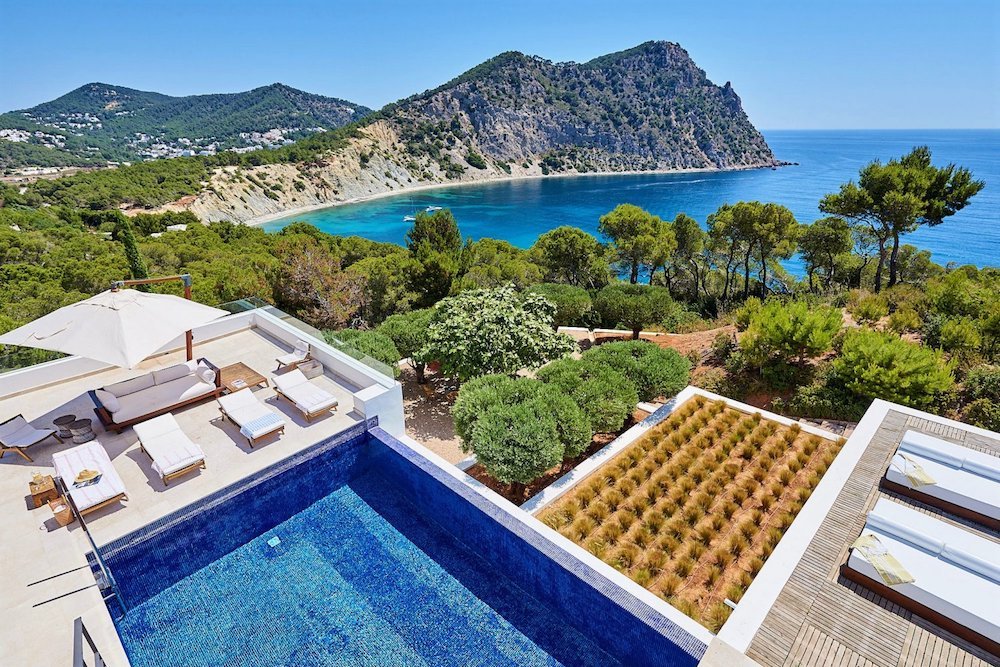
Hotels, Resorts, and Boutique Accommodations
The Balearic Islands are renowned for their luxurious hotels and resorts, many of which boast stunning coastal locations, world-class amenities, and impeccable service.
From five-star beachfront properties to charming boutique hotels nestled in historic villages, visitors can indulge in a truly unforgettable stay.
Key areas for upscale accommodations include Palma de Mallorca, Ibiza Town, and Ciutadella in Menorca, where travelers can find an array of prestigious hotels catering to discerning guests.
Airbnb and Vacation Rentals
For those seeking a more personalized and immersive experience, Airbnb and vacation rentals offer the opportunity to live like a local while exploring the Balearic Islands.
From quaint apartments overlooking bustling squares to rustic villas tucked away in the countryside, vacation rentals provide flexibility, comfort, and privacy for travelers of all kinds.
Staying in a vacation rental allows visitors to discover hidden gems, explore off-the-beaten-path neighborhoods, and connect with the local community in a meaningful way.
Camping and Eco-Friendly Accommodations
For nature enthusiasts and eco-conscious travelers, camping and eco-friendly accommodations provide sustainable alternatives to traditional lodging options.
Several campsites and eco-resorts across the Balearic Islands offer eco-friendly amenities, organic cuisine, and immersive nature experiences, allowing guests to reconnect with the natural beauty of their surroundings.
From eco-lodges nestled in the Menorcan countryside to seaside campgrounds on the shores of Formentera, eco-friendly accommodations provide a unique opportunity to minimize environmental impact while embracing the islands’ pristine landscapes.
Travelers interested in camping should research and adhere to local regulations and guidelines to ensure a safe and responsible experience.
Whether you prefer the opulence of a luxury resort, the charm of a boutique hotel, or the tranquility of an eco-friendly retreat, the Balearic Islands offer a wealth of accommodation options to suit every taste and preference.
By choosing the accommodation that best reflects your travel style, you can enhance your experience and create lasting memories amidst the breathtaking beauty of the Mediterranean.
Top Attractions and Activities
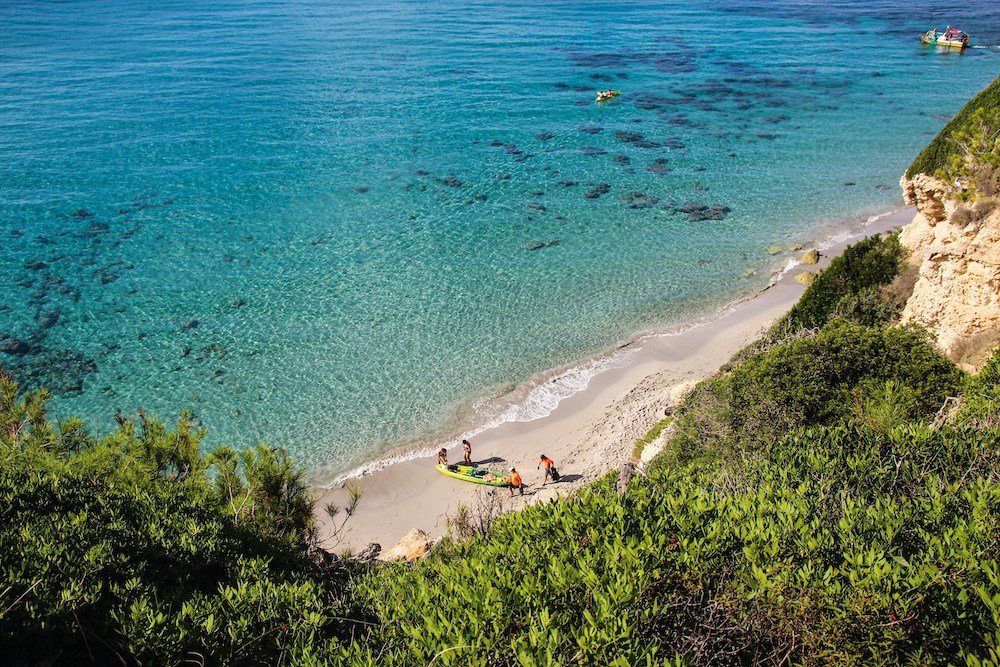
The Balearic Islands boast a plethora of attractions and activities that cater to diverse interests and preferences.
From sun-kissed beaches and historic landmarks to adrenaline-pumping outdoor adventures and vibrant nightlife, there’s something for everyone to enjoy in this Mediterranean paradise.
Beaches and Coastal Areas
- Mallorca: Explore the stunning beaches of Playa de Palma, Cala Varques, and Cala Agulla, renowned for their crystal-clear waters and golden sands.
- Menorca: Discover the unspoiled beauty of Cala Macarella, Cala Mitjana, and Cala Turqueta, nestled amidst rugged cliffs and lush vegetation.
- Ibiza: Soak up the sun on the iconic beaches of Playa d’en Bossa, Cala Salada, and Cala Conta, or escape to the secluded coves of Es Cubells and Cala Llentrisca.
- Formentera: Relax on the pristine shores of Ses Illetes, Playa de Migjorn, and Cala Saona, where turquoise waters and white sands create a tranquil paradise.
Historical Sites and Cultural Landmarks
- Mallorca: Visit the majestic La Seu Cathedral in Palma de Mallorca, explore the ancient ruins of the Roman city of Pollentia, and wander through the charming streets of Valldemossa.
- Menorca: Discover the prehistoric stone monuments of Naveta des Tudons and Torre d’en Galmés, and explore the medieval streets of Ciutadella and Mahón.
- Ibiza: Step back in time at the UNESCO-listed Dalt Vila (Old Town) of Ibiza Town, explore the ancient Phoenician ruins of Sa Caleta and Puig des Molins, and visit the picturesque village of Santa Eulària des Riu.
- Formentera: Explore the historic lighthouse of Far de la Mola, wander through the charming village of Sant Francesc Xavier, and discover the ancient watchtowers scattered along the coastline.
Outdoor Activities (Hiking, Biking, Water Sports)
- Mallorca: Embark on a scenic hike along the GR 221 trail in the Serra de Tramuntana mountains, cycle through picturesque villages and olive groves in the interior, or try your hand at water sports such as snorkeling, scuba diving, and sailing.
- Menorca: Explore the Camí de Cavalls coastal trail, which circumnavigates the entire island, cycle through the rolling hills of the countryside, or kayak along the rugged coastline and hidden coves.
- Ibiza: Hike to the summit of Sa Talaia, the island’s highest peak, mountain bike through pine forests and rocky terrain, or enjoy water activities such as paddleboarding, windsurfing, and jet skiing along the coast.
- Formentera: Discover the island’s natural beauty on foot or by bike along scenic coastal paths, explore the underwater world while snorkeling or diving in crystal-clear waters, or embark on a sailing adventure to neighboring islets and secluded beaches.
Nightlife and Entertainment Options
- Mallorca: Experience the vibrant nightlife of Palma de Mallorca, where bustling bars, clubs, and live music venues come alive after dark.
- Ibiza: Dance the night away at world-renowned clubs such as Pacha, Amnesia, and Ushuaïa, or enjoy sunset cocktails at beachfront bars along the iconic Sunset Strip.
- Menorca: While Menorca may be more tranquil, you can still find lively bars and beach clubs in Mahón and Ciutadella, offering a relaxed atmosphere and stunning sea views.
- Formentera: Embrace the island’s laid-back vibe with beachfront dinners, live music performances, and sunset parties at beach bars like Blue Bar and Piratabus.
Cuisine and Dining Experiences
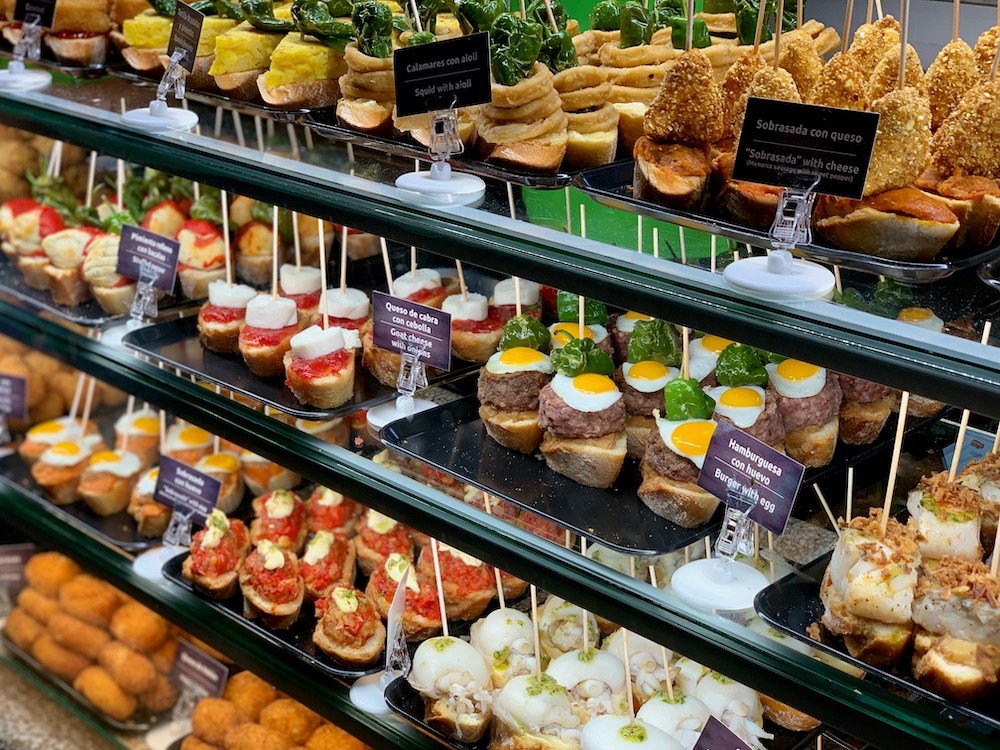
Exploring the culinary delights of the Balearic Islands is an essential part of any visit, where traditional flavors, fresh ingredients, and innovative recipes come together to create a gastronomic journey like no other.
Traditional Balearic Cuisine
- Mallorca: Indulge in hearty dishes such as ‘Sobrassada’ (a spicy cured sausage), ‘Tumbet’ (a vegetable casserole), and ‘Ensaimada’ (a sweet pastry) that reflect the island’s rich agricultural heritage and Mediterranean influences.
- Menorca: Sample local specialties like ‘Caldereta de Langosta’ (lobster stew), ‘Caragols a la Menorquina’ (snails cooked in garlic and parsley), and ‘Queso Mahón’ (artisanal cheese), which showcase the island’s maritime traditions and rural charm.
- Ibiza: Savor traditional dishes such as ‘Bullit de Peix’ (fish stew), ‘Sofrit Pages’ (a hearty meat and vegetable stew), and ‘Flaó’ (a sweet cheesecake) that celebrate the island’s rural roots and diverse cultural heritage.
- Formentera: Enjoy fresh seafood delicacies like ‘Sopas de Peix’ (fish soup), ‘Frito de Pulpo’ (octopus stew), and ‘Ensaimadas’ (sweet pastries) made with locally sourced ingredients and time-honored recipes.
Local Delicacies and Specialties
- Paella: A quintessential Spanish dish, paella is a must-try culinary experience in the Balearic Islands, featuring savory rice cooked with an array of seafood, meats, and aromatic spices.
- Sangria: Cool off with a refreshing glass of Sangria, a traditional Spanish beverage made with red wine, chopped fruit, and a splash of brandy, served over ice for the perfect summer indulgence.
- Hierbas Ibicencas: Sample the iconic Hierbas Ibicencas, a locally produced herbal liqueur infused with aromatic herbs and spices, enjoyed as an aperitif or digestif after a delicious meal.
- Tapas: Explore the vibrant tapeo culture of Spain with a selection of tapas, small plates of savory snacks and appetizers, featuring local ingredients such as olives, cured meats, cheeses, and seafood.
Recommended Restaurants and Dining Experiences
- Casa Manolo (Mallorca): Located in the heart of Palma de Mallorca, Casa Manolo offers a fine dining experience with a focus on traditional Mallorcan cuisine, featuring seasonal ingredients and innovative culinary techniques.
- Es Cranc (Menorca): Situated in the picturesque port of Fornells, Es Cranc is renowned for its fresh seafood dishes and waterfront terrace, where diners can enjoy panoramic views of the Mediterranean Sea.
- La Oliva (Ibiza): Nestled in the historic Dalt Vila of Ibiza Town, La Oliva serves contemporary Mediterranean cuisine with a creative twist, using locally sourced ingredients and organic produce.
- Can Carlos (Formentera): Set in a charming farmhouse surrounded by olive groves, Can Carlos offers a rustic dining experience with a focus on seasonal flavors and traditional Formentera cuisine, accompanied by a curated selection of local wines.
Transportation and Getting Around

Navigating the Balearic Islands is relatively straightforward, with a variety of transportation options available to suit every traveler’s needs.
From efficient public transportation systems to convenient car rentals and alternative modes of travel, getting around the islands is both convenient and accessible.
Public Transportation Options (Buses, Trains)
- Bus Services: Each of the major islands in the Balearics is served by a comprehensive network of bus routes, offering convenient and affordable transportation between towns, villages, and popular attractions. Bus services are frequent and reliable, with air-conditioned vehicles providing comfort for passengers.
- Train Services: While train services are limited in the Balearic Islands, Mallorca boasts a scenic vintage train ride on the Ferrocarril de Sóller, connecting the capital city of Palma with the picturesque town of Sóller. The journey offers stunning views of the island’s countryside and coastline.
Car Rentals and Driving Tips
- Car Rentals: Renting a car is a popular option for travelers seeking flexibility and independence while exploring the Balearic Islands. Numerous car rental agencies operate at major airports and ferry terminals, offering a wide range of vehicles to suit various budgets and preferences.
- Driving Tips: When driving in the Balearic Islands, it’s important to familiarize yourself with local traffic regulations and road signs. Keep in mind that speed limits are strictly enforced, and parking may be limited in crowded areas. Additionally, narrow roads and winding mountain passes require caution and attentiveness behind the wheel.
Cycling and Alternative Modes of Transportation
- Cycling: With its scenic landscapes and mild climate, the Balearic Islands are a paradise for cyclists of all skill levels. From leisurely rides along coastal promenades to challenging mountain ascents, there are endless opportunities to explore the islands on two wheels. Numerous bike rental shops offer a variety of bicycles and equipment, making cycling an eco-friendly and enjoyable way to experience the local scenery.
- Alternative Modes of Transportation: In addition to buses, trains, cars, and bicycles, alternative modes of transportation such as scooters, mopeds, and electric bikes are popular choices for getting around the islands. These compact and nimble vehicles provide flexibility and convenience for short trips and urban exploration.
Whether traveling by public transportation, renting a car, or cycling through scenic landscapes, getting around the Balearic Islands is a seamless and enjoyable experience.
With an array of transportation options at your disposal, you can explore the islands at your own pace and uncover the hidden gems that await around every corner.
Cultural Insights and Etiquette
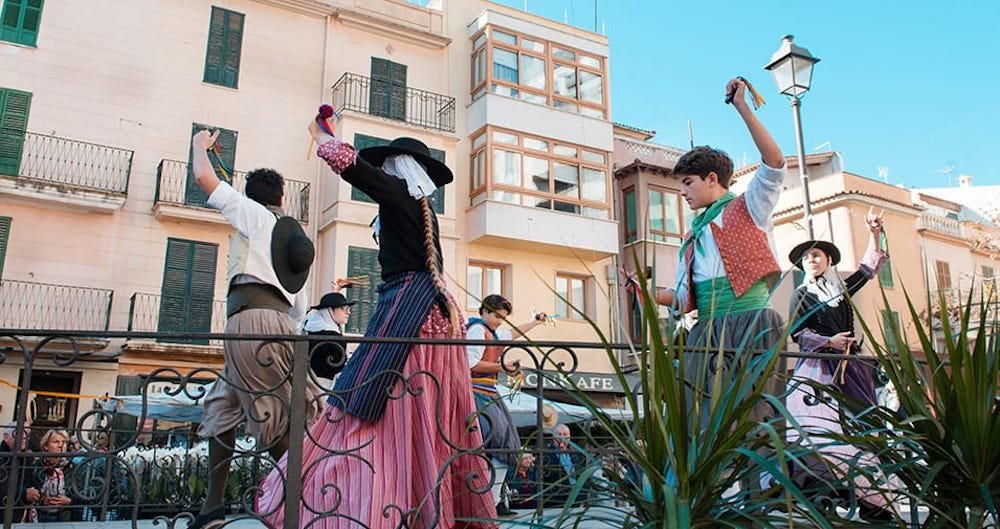
Immersing yourself in the culture of the Balearic Islands enriches your travel experience and fosters meaningful connections with locals.
Understanding cultural nuances, language etiquette, and social customs enhances mutual respect and appreciation during your visit.
Language and Communication Tips
- Official Languages: Spanish and Catalan are the official languages spoken in the Balearic Islands. While Spanish is widely understood, many locals speak Catalan as their primary language, particularly in rural areas and smaller villages.
- Basic Phrases: Learning a few basic phrases in Catalan or Spanish can go a long way in building rapport with locals. Common greetings, expressions of gratitude, and polite phrases demonstrate cultural sensitivity and goodwill.
- Non-Verbal Communication: Non-verbal cues such as eye contact, hand gestures, and body language play a significant role in communication. Maintain respectful eye contact and use gestures sparingly to convey your message effectively.
Respect for Local Customs and Traditions
- Dress Code: While the Balearic Islands are known for their relaxed atmosphere, it’s important to dress appropriately when visiting religious sites, upscale restaurants, and cultural events. Modest attire that covers shoulders and knees is often required in churches and religious sites.
- Siesta Culture: Embrace the local siesta culture, where shops, businesses, and restaurants may close for a few hours in the afternoon. Use this time to relax, enjoy a leisurely meal, or explore quieter areas off the beaten path.
- Respect for Nature: The Balearic Islands are home to diverse ecosystems and natural habitats. Show respect for the environment by practicing responsible tourism, disposing of waste properly, and supporting eco-friendly initiatives.
Tipping and Gratuities
- Tipping Customs: Tipping is not always expected or customary in the Balearic Islands, as service charges are often included in restaurant bills. However, rounding up the bill or leaving a small gratuity for exceptional service is appreciated.
- Hotel Staff: It’s common to leave a small tip for hotel staff, such as housekeepers and porters, as a gesture of appreciation for their service.
- Taxi Drivers: While not obligatory, rounding up the fare or leaving a small tip for taxi drivers is customary, especially for exceptional service or assistance with luggage.
Best Times to Visit
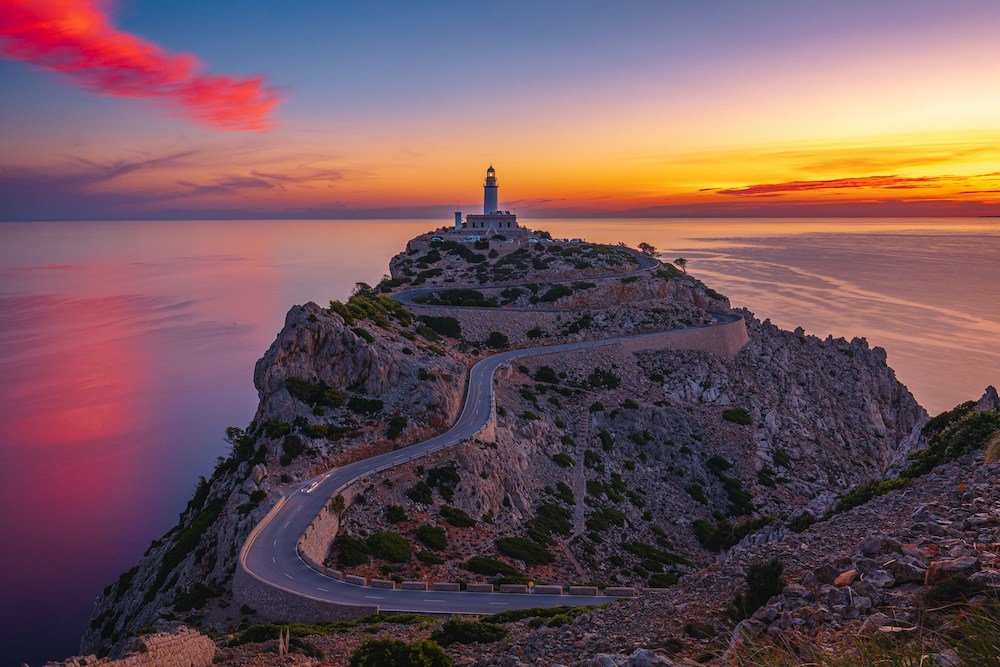
Choosing the optimal time to visit the Balearic Islands ensures an enjoyable and fulfilling travel experience, with favorable weather conditions, vibrant festivals, and cultural events enhancing your stay.
Climate and Weather Considerations
- Mediterranean Climate: The Balearic Islands enjoy a Mediterranean climate characterized by hot, dry summers and mild, wet winters. Summers, from June to September, offer long hours of sunshine and ideal beach weather, with temperatures ranging from 25°C to 35°C (77°F to 95°F).
- Spring and Autumn: Spring (March to May) and autumn (October to November) are pleasant seasons for exploring the islands, with mild temperatures and fewer crowds. These shoulder seasons provide comfortable weather for outdoor activities and sightseeing, making them ideal times for budget-conscious travelers.
- Winter Months: While winters (December to February) are cooler and wetter, with temperatures averaging around 10°C to 15°C (50°F to 59°F), the Balearic Islands remain relatively mild compared to other European destinations. Winter is a quiet time for tourism, offering opportunities for peaceful exploration and cultural immersion.
Peak Tourist Seasons and Off-Peak Periods
- Peak Season: The peak tourist season in the Balearic Islands typically coincides with the summer months, from June to August. During this time, the islands experience an influx of visitors seeking sun, sand, and vibrant nightlife. Accommodation prices tend to be higher, and popular attractions may be crowded.
- Off-Peak Periods: Shoulder seasons, including spring and autumn, offer a quieter and more relaxed atmosphere, with fewer tourists and milder temperatures. Traveling during off-peak periods allows for more affordable accommodations, shorter wait times at attractions, and a deeper connection with local culture and traditions.
Special Events and Festivals
- Semana Santa (Holy Week): Celebrated in the week leading up to Easter, Semana Santa features religious processions, ceremonies, and traditional festivities across the Balearic Islands, offering insight into local customs and religious traditions.
- Sant Joan Festival (June 23-24): The Sant Joan Festival marks the summer solstice with bonfires, fireworks, and street parties, particularly on the island of Menorca. Locals and visitors gather to celebrate the arrival of summer with music, dancing, and revelry.
- Festes de la Terra (August): Held in Palma de Mallorca, the Festes de la Terra is a cultural extravaganza featuring music concerts, dance performances, and traditional parades. The festival highlights the rich heritage and cultural diversity of the Balearic Islands.
- Fiesta de la Virgen del Carmen (July 16): Celebrated in coastal towns and villages, the Fiesta de la Virgen del Carmen honors the patron saint of fishermen with maritime processions, boat blessings, and colorful festivities along the waterfront.
Budgeting and Cost Considerations
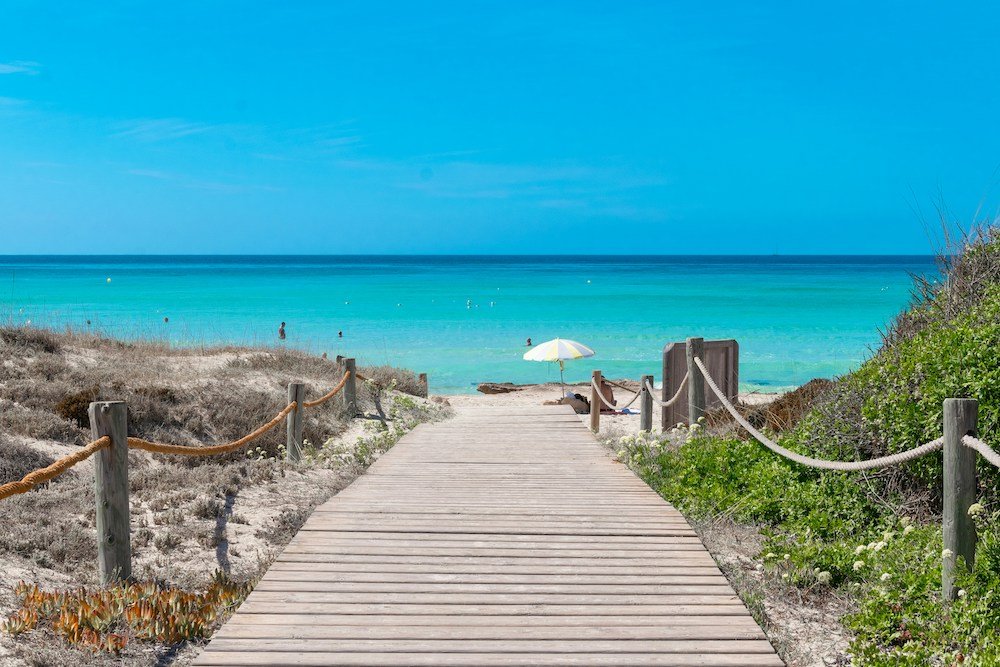
Planning your budget for a trip to the Balearic Islands involves considering daily expenses, money-saving tips, and potential hidden costs.
Understanding the financial aspects of your journey ensures a well-managed and enjoyable visit.
Average Daily Expenses for Travelers
- Accommodation: On average, hotel prices range from €50 to €200 per night, depending on the island, location, and level of comfort. Luxury resorts may have higher rates, while budget accommodations and hostels offer more affordable options.
- Meals: Dining expenses vary, with an average meal at a mid-range restaurant costing between €15 to €30 per person. For a more economical option, explore local markets and try budget-friendly street food.
- Transportation: Public transportation costs, including buses and local ferries, are reasonably priced, with single tickets ranging from €1.50 to €5. Car rentals start at approximately €30 per day, excluding fuel costs.
- Activities and Attractions: Entrance fees to museums and attractions generally range from €5 to €15. Outdoor activities, such as guided tours or water sports, may have additional costs, so budget accordingly.
Tips for Saving Money While Visiting the Balearics
- Off-Peak Travel: Consider visiting during the shoulder seasons (spring and autumn) to take advantage of lower accommodation prices and fewer crowds.
- Local Markets: Explore local markets for fresh produce, snacks, and souvenirs. This not only provides a taste of local life but also offers budget-friendly alternatives to restaurants.
- Self-Catering Accommodations: Opt for accommodations with kitchen facilities, allowing you to prepare some meals and save on dining expenses.
- Public Transportation: Utilize public transportation options like buses and ferries, which are cost-effective and provide a convenient way to explore the islands.
- Free Activities: Take advantage of free activities such as hiking, beachcombing, and exploring charming villages to enjoy the natural beauty and culture without additional expenses.
Hidden Costs and Unexpected Expenses to Be Aware Of
- Tourist Taxes: Some accommodations charge a tourist tax per person, per night, which may not be included in the initial booking price.
- Car Rental Extras: Be aware of additional costs for fuel, tolls, and insurance when renting a car. Check the rental agreement thoroughly to understand potential hidden fees.
- Water Activities: While water activities can be enjoyable, costs for equipment rental or guided excursions may add up. Confirm prices beforehand to avoid surprises.
- Restaurant Service Charges: Some restaurants may include a service charge in the bill. Check whether service is included before leaving an additional tip.
- Event Tickets: If you plan to attend special events or festivals, verify ticket prices and any associated costs for transportation or amenities.
Sustainable Tourism Practices
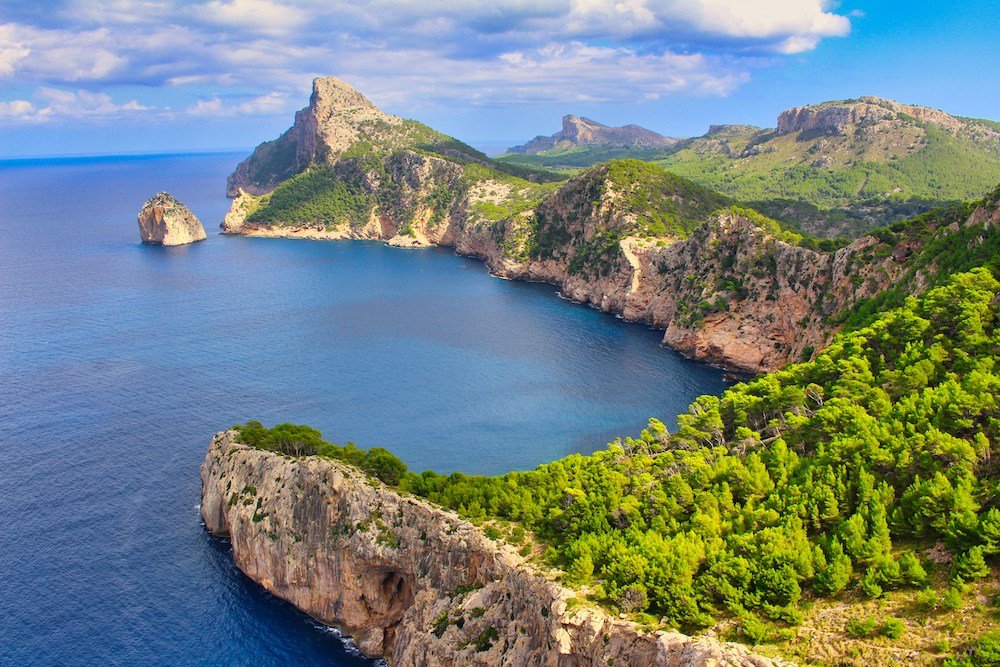
Promoting sustainable tourism practices in the Balearic Islands contributes to the preservation of natural resources, cultural heritage, and local communities.
By adopting eco-friendly initiatives, minimizing environmental impact, and supporting local businesses, travelers can play a vital role in conserving the beauty and integrity of these stunning destinations.
Eco-Friendly Initiatives and Responsible Tourism Efforts
- Protected Areas: Support conservation efforts by respecting protected areas, wildlife habitats, and marine reserves. Observe wildlife from a safe distance and follow designated trails to minimize disruption to natural ecosystems.
- Waste Management: Dispose of waste responsibly by recycling, composting, and using designated bins for trash. Reduce single-use plastics by carrying reusable water bottles, bags, and utensils during your travels.
- Sustainable Accommodations: Choose eco-friendly accommodations that prioritize energy efficiency, water conservation, and waste reduction practices. Look for hotels and resorts certified by sustainable tourism organizations for their commitment to environmental stewardship.
Tips for Minimizing Environmental Impact While Visiting
- Conserve Water and Energy: Practice water-saving techniques such as shorter showers and reusing towels to minimize water consumption. Turn off lights, air conditioners, and electronics when not in use to conserve energy.
- Opt for Sustainable Transportation: Choose eco-friendly transportation options such as walking, cycling, or using public transportation to reduce carbon emissions and alleviate traffic congestion.
- Respect Marine Life: When engaging in water activities such as snorkeling or diving, avoid touching or disturbing marine life, coral reefs, and underwater ecosystems. Use reef-safe sunscreen to protect marine biodiversity from harmful chemicals.
Supporting Local Communities and Businesses
- Shop Local: Support artisans, farmers, and small businesses by purchasing locally made products, crafts, and souvenirs. Visit markets, cooperatives, and family-owned establishments to contribute to the local economy and cultural heritage.
- Participate in Cultural Experiences: Embrace local traditions, festivals, and cultural events to gain insights into the rich heritage and diversity of the Balearic Islands. Attend performances, workshops, and community gatherings to connect with residents and celebrate shared values.
- Respect Cultural Norms: Show respect for local customs, traditions, and etiquette by learning about cultural norms and social practices. Seek permission before taking photographs of individuals or religious sites, and dress modestly when visiting sacred places or participating in religious ceremonies.
Safety and Health Considerations

Prioritizing safety and health considerations during your visit to the Balearic Islands ensures a smooth and enjoyable travel experience.
Familiarizing yourself with emergency contacts, staying informed about safety tips, and securing adequate travel insurance are essential components of responsible travel planning.
Emergency Contacts and Healthcare Services
- Emergency Services: In case of emergencies, dial the universal European emergency number, 112, to reach police, fire, or medical services. This number can be accessed free of charge from any phone, including mobile devices.
- Healthcare Facilities: The Balearic Islands are equipped with modern healthcare facilities, including hospitals, clinics, and pharmacies. Major towns and tourist areas have medical centers staffed by English-speaking professionals.
- Travel Insurance: Ensure you have comprehensive travel insurance that covers medical expenses, emergency evacuation, and repatriation in the event of illness or injury during your trip.
Tips for Staying Safe While Exploring the Islands
- Stay Informed: Familiarize yourself with local laws, customs, and safety regulations before embarking on your journey. Stay updated on weather forecasts, potential hazards, and travel advisories issued by official authorities.
- Personal Safety: Practice common sense safety measures such as safeguarding valuables, staying alert in crowded areas, and avoiding isolated or poorly lit areas, especially at night.
- Swimming Safety: Exercise caution when swimming in the sea, especially in areas with strong currents or rough surf. Observe warning signs, follow lifeguard instructions, and avoid swimming alone or in unfamiliar waters.
- Sun Protection: Protect yourself from the sun’s harmful rays by wearing sunscreen, sunglasses, and protective clothing, especially during peak hours of sunlight. Stay hydrated and seek shade when necessary to prevent heat-related illnesses.
Travel Insurance Recommendations
- Comprehensive Coverage: Choose a travel insurance policy that provides comprehensive coverage for medical emergencies, trip cancellation or interruption, baggage loss or delay, and other unforeseen circumstances.
- Read the Fine Print: Review the terms and conditions of your travel insurance policy carefully to understand coverage limits, exclusions, and claim procedures. Ensure the policy meets your specific needs and provides adequate protection for your trip.
- Emergency Assistance Services: Select a travel insurance provider that offers 24/7 emergency assistance services, including access to medical professionals, assistance with medical evacuations, and coordination of emergency repatriation.
Conclusion
Exploring the beauty of the Balearic Islands promises a journey filled with captivating landscapes, rich culture, and unforgettable experiences.
As you embark on your adventure to this Mediterranean paradise, remember to embrace the diverse attractions, immerse yourself in local customs, and cherish the moments that make your visit truly special.
Throughout this guide, we’ve explored the enchanting allure of the Balearic Islands, from the sun-kissed beaches and historic landmarks to the vibrant festivals and culinary delights that define these iconic destinations.
We’ve covered essential topics including transportation, accommodation, cultural insights, and sustainable tourism practices to help you plan a memorable and rewarding trip.
With its picturesque landscapes, azure waters, and warm hospitality, the Balearic Islands beckon travelers to discover their hidden treasures and timeless charm.
Whether you seek relaxation, adventure, or cultural immersion, the islands offer a wealth of experiences to suit every taste and preference.
As you venture into the heart of the Balearic Islands, allow yourself to be captivated by the beauty of Mallorca’s rugged coastline, Menorca’s tranquil beaches, Ibiza’s vibrant nightlife, and Formentera’s pristine landscapes.
Take time to savor the flavors of traditional cuisine, immerse yourself in local traditions, and forge connections with the welcoming communities that call these islands home.
Remember to travel responsibly, respect the environment, and support sustainable tourism initiatives that preserve the natural beauty and cultural heritage of the Balearic Islands for future generations to enjoy.
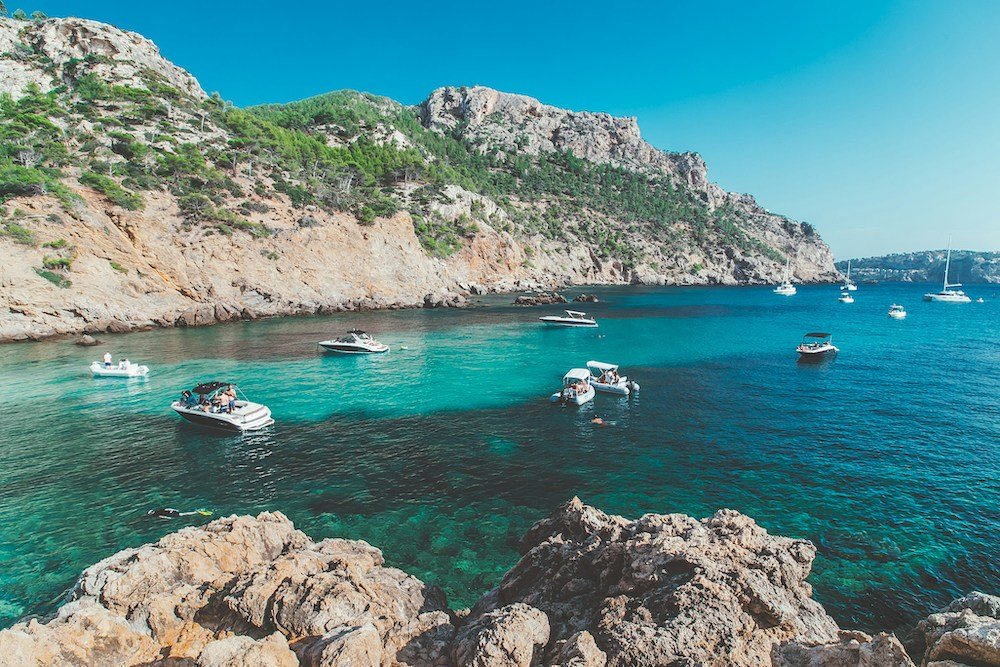
FAQ’s About the Balearic Islands:
What are the 5 Balearic Islands?
The Balearic Islands consist of five main islands: Mallorca, Menorca, Ibiza, Formentera, and Cabrera.
Each island offers its own unique charm, ranging from Mallorca’s stunning beaches to Menorca’s serene landscapes and Ibiza’s vibrant nightlife.
What are the 4 Balearic Islands?
The Balearic Islands are commonly referred to as four main islands: Mallorca, Menorca, Ibiza, and Formentera.
These islands are the most well-known and frequently visited destinations in the archipelago, each offering distinct experiences and attractions for travelers.
Which is better Canary Islands or Balearic Islands?
The choice between the Canary Islands and the Balearic Islands depends on individual preferences and travel interests.
The Canary Islands are known for their diverse landscapes, including volcanic terrain, whereas the Balearic Islands boast Mediterranean charm, stunning beaches, and vibrant culture.
Both destinations offer unique experiences, making it a matter of personal preference.
Are the Balearic Islands hot all year round?
The Balearic Islands enjoy a Mediterranean climate characterized by hot, dry summers and mild, wet winters.
While the islands experience warm temperatures throughout the year, the peak tourist season typically occurs during the summer months when temperatures are hottest.
Winters are milder but still pleasant for exploring and outdoor activities.
Should I visit Ibiza or Mallorca?
Choosing between Ibiza and Mallorca depends on your interests and preferences.
Ibiza is renowned for its lively nightlife, electronic music scene, and beautiful beaches, making it a popular destination for partygoers and beach enthusiasts.
Mallorca, on the other hand, offers diverse landscapes, historic sites, cultural attractions, and family-friendly activities, appealing to a wider range of travelers.
What is the nicest place in Majorca?
Majorca, or Mallorca, offers numerous beautiful places to explore.
Some of the nicest places include the historic capital city of Palma de Mallorca with its stunning cathedral and charming old town, the picturesque village of Valldemossa nestled in the Tramuntana mountains, and the breathtaking beaches of Cala d’Or and Cala Millor along the eastern coast.
How long is the ferry ride from Barcelona to Mallorca?
The ferry ride from Barcelona to Mallorca typically takes around 6 to 8 hours, depending on the ferry company and type of service.
There are several ferry operators offering daily crossings between Barcelona and Mallorca, providing both daytime and overnight options for travelers.
What is special about the Balearic Islands?
The Balearic Islands are renowned for their stunning natural beauty, including crystal-clear waters, picturesque beaches, and rugged coastlines.
Each island offers its own unique charm, from the vibrant nightlife of Ibiza to the tranquility of Menorca’s countryside.
The islands also boast a rich cultural heritage, with historic landmarks, traditional festivals, and culinary delights waiting to be discovered by visitors.
Whether you’re seeking relaxation, adventure, or cultural immersion, the Balearic Islands offer something for everyone to enjoy.
